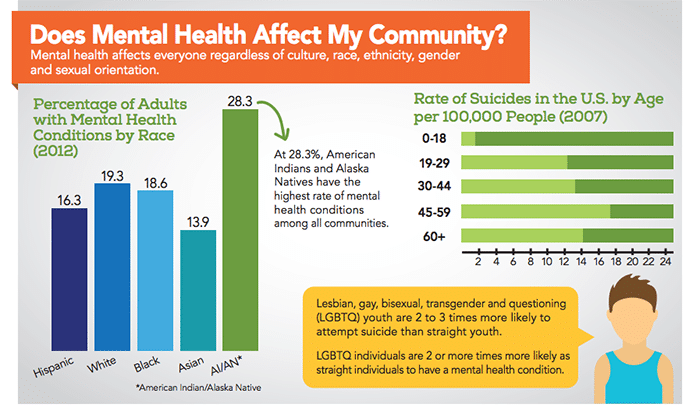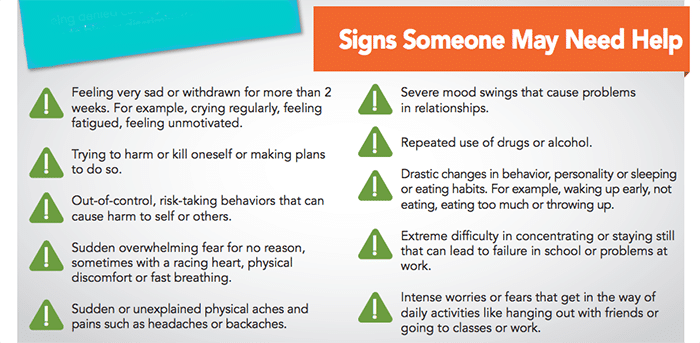Mental Health Facilities in Atlanta
Home » Mental Health Services
■ Our Mental Heath Services
About Our Mental Health Facilities in Atlanta, GA
Our mental health facilities in Atlanta address the “practical” side of what is being addressed in clinical services like therapy. Buckhead Behavioral Health provides mental health and substance abuse treatment for adults. Additionally, our care managers develop customized plans to address each individual’s needs. They do so by helping them develop life skills that keep them on the path to long-term recovery.
A care manager typically serves as the point person for an individual’s treatment team. The care manager ensures that all outpatient treatment providers—including therapists, psychiatrists, nutritionists, sober living homes, and other providers—collaborate with one another. Care management may be either short or long-term, for instance, depending on the individual’s needs and progress. Additionally, they work with family members throughout the entire process. We believe family therapy and involvement ensures recovering individuals have the proper support to find recovery in their home environments. We also emphasize the following goals for our mental health treatment programs in Atlanta:
- Individual therapy and medication management
- Nutritional guidance
- Short and long-term goal setting
- Employment guidance
- Financial consultation/money management
- General accountability
- Transition plans with family
- Personal and home organization
- Maintaining a balanced life
Check Out Our Facility in Atlanta, GA
Conditions Treated at Our Mental Health Facilities in Atlanta, GA
Buckhead Behavioral Health treats a variety of different mental illnesses here in Atlanta. We conduct a full assessment of all individuals who come to us for care to determine what mental health issues exist. Our treatment team works with the individual to create a plan that allows them to understand their mental health challenges.
These plans can help individuals manage their symptoms, and develop healthy coping skills that they can use once they leave treatment. We also determine if any medications are needed and monitor the dosages, the length of time taken, and any accompanying side effects.
Some of our mental health programs include:
- Anxiety Treatment
- Depression Treatment
- Bipolar Disorder
- Post-traumatic stress disorder
- Trauma-based mental illnesses
- Obsessive-compulsive disorder
- Attention-deficit/hyperactivity disorder (ADHD)
- Borderline personality disorder (BPD)
- Schizoaffective Treatment

Want to Learn more about Buckhead Behavioral Health?

Atlanta Mental Health Statistics
Mental Health of Georgia reports some alarming statistics that showcase the need for proper treatment for mental illness statewide. For example, Georgia ranks 48th out of all 50 states when it comes to offering available access to mental health care, resources, and insurance. In other words, someone with a severe mental illness has a 1 in 5 chance of going to prison instead of getting the help they need in a hospital setting. Lastly, 2 out of 5 Georgia children cannot easily access mental health treatment.
Fulton County has a demonstrable need for proper mental health care for its residents. Reports for the county show:
Intensive Outpatient Program (IOP)
IOP is similar to PHP. However, you attend IOP less often than PHP, usually in the evening hours. IOP is excellent if you have work, school, or family responsibilities. Typically, IOP lasts for about 3 to 4 hours per session about 3 days per week. Many facilities also offer telehealth IOP options for even more flexibility.
- 11.3% of adults live with frequent mental distress.
- 15.6% of Medicare beneficiaries experience depression.
- There are 30.8 deaths of despair per 100,000 residents. Deaths of despair include suicide, drug overdoses, and deaths resulting from alcohol abuse.
- In 2019, 4% of residents considered attempting suicide.
- 10% of residents reported feeling sad or hopeless almost every day for two weeks or more in a row.
- 1,340 mental and behavior disorder E.R. visits occured during the period of 2014 to 2018. These include ones related to mental health and substance abuse or overdose.
The COVID-19 pandemic has increased the need to treat mental health issues across the country. An increase in abuse of drugs and alcohol has also occurred, which often exacerbates existing mental illness or helps contribute to the development of one. Given these alarming facts, it is crucial that mental health facilities in Atlanta, GA are available to provide effective treatment.

Signs and Symptoms of Mental Health Disorders
- Consistently feeling sad or down
- Anxiety
- Panic attacks
- Mood swings
- Excessive worrying
- Feeling guilty without a valid reason
- Feeling hopeless
- Irritability
- Quick to anger
- Suicidal thoughts or feelings
Barriers to Mental Health Treatment
- Fear of being stigmatized
- Shame about mental health symptoms
- Dual diagnosis and Co-occurring substance abuse masking symptoms
- Lack of knowledge on mental health and available services
- Finances and costs of treatment
- Lack of access to a mental health provider
Overall, shame and stigma are typically the most significant barriers to mental health treatment. Consequently, shame about mental health symptoms like depression or anxiety might prevent a person from opening up due to fear of being perceived as “weak” or “unstable.” Additionally, these feelings of shame and negative mental health stigmas can lead many to “self-medicate” their symptoms with drugs or alcohol as a result. This act of self-medicating may in turn make them feel like they can avoid the labels that might come with formal treatment.
Mental health facilities in Atlanta, such as Buckhead Behavioral Health, understand that personal shame and negative stigma can be complex and challenging barriers to treatment. Societal fears of individuals with mental illnesses can cause others to hide their symptoms or mask them with substance abuse. Family members of those with mental health and substance use disorders might need additional education and support to understand their loved one in treatment.
Mental health facilities in Atlanta serve as a catalyst between the community and the individuals needing treatment by combatting mental health and substance abuse stigma. For example, Buckhead Behavioral Health offers family therapy and dual diagnosis support to help families and individuals understand their symptoms better. We aim to help individuals and the community understand that mental health conditions are treatable medical disorders and recovery is possible for anyone.
Mental Health Program Options at Buckhead Behavioral Health
We understand that there is no such thing as a one-size-fits-all program to treat mental health. Our team of professionals helps assess what each person who comes to us needs, and together we decide which approach will best suit the individual’s needs and treatment goals.
Mental health treatment programs offered at Buckhead Behavioral Health include:
Outpatient Drug Rehab
Intensive Outpatient Program (IOP)
IOP is ideal for someone who wants to work or go to school and handle responsibilities related to their family but can still devote time to treatment sessions. Our IOP program takes place 3 to 4 days per week for approximately 3 hours per day. Specifically, IOPs offer treatment plans that include individual therapy, group therapy, support groups, and complementary therapies.
Partial Hospitalization Program (PHP)
PHP is ideal for someone who needs a more structured and time-intensive program than IOP or Outpatient Rehab but doesn’t need to attend a residential program. Our PHP program takes place 3 to 5 days per week for 20 to 25 hours per week. We provide treatment plans that include individual, group, and family therapy, motivational interviewing, contingency management, and medication-assisted treatment.
Medication-Assisted Treatment (MAT)
Medication-Assisted Treatment is an approach to addiction recovery that combines traditional counseling and therapy with medication. Several FDA-approved medications can be used to help reduce cravings for substances and ease withdrawal symptoms. Some can also cause uncomfortable physical side effects if a person uses a substance again, which serves to discourage them from repeating usage.
COVID-19’s Impact on Mental Health
The devastating COVID-19 pandemic drastically changed the global scale on mental health.
- Rise in Anxiety and Depression: According to the CDC, by June 2020, 40% of U.S. adults reported struggling with mental health or substance use, with 31% experiencing anxiety or depression symptoms.
- Young Adults Affected: Approximately 25% of young adults (18-24 years old) considered suicide due to the pandemic.
Quick Nav
- About Our Mental Health Facilities in Atlanta, GA
- Check Out Our Mental Health Facility in Atlanta, GA
- Conditions Treated at Our Mental Health Facilities in Atlanta, GA
- Want to Learn more about Buckhead Behavioral Health?
- Atlanta Mental Health Statistics
- Signs and Symptoms of Mental Health Disorders
- Barriers to Mental Health Treatment
- Mental Health Program Options at Buckhead Behavioral Health
- COVID-19’s Impact on Mental Health
- Find Help At Our Mental Health Facilities in Atlanta, GA
- Contact Buckhead Behavioral Health In Atlanta, GA Today
Our Services
Take Back Control:
Contact Us Now
Facility Image Gallery





Send us a Message
Find Help At Our Mental Health Facilities in Atlanta, GA
Living with untreated mental health concerns can take a heavy toll, impacting your quality of life. But there is hope. With specialized mental health treatment plans and extensive resources, Buckhead Behavioral Health is here to help you learn to manage your symptoms and get back to living a meaningful and fulfilling life here in Atlanta, Georgia. Our qualified and compassionate staff will be with you throughout the entire treatment process. Take the first step towards healing today by calling Buckhead Behavioral Health or visiting our admissions page to get started on the road to recovery.






